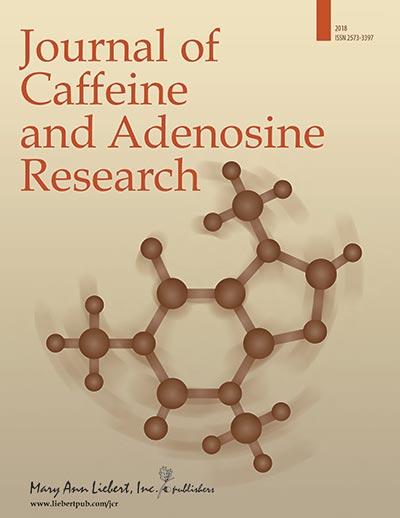
Credit: Mary Ann Liebert, Inc., publishers
New Rochelle, NY, April 3, 2019-Researchers have identified a common mechanism implicating adenosine in the cause of restless leg syndrome (RLS) symptoms — the periodic limb movements characteristic of RLS and the state of enhanced arousal that both disrupt sleep. Preclinical findings in a rat model of RLS and clinical results in humans together suggest that targeting the pathogenetic downregulation of adenosine A1 receptor (A1R) may be a promising therapeutic strategy, according to an editorial published in Journal of Caffeine and Adenosine Research, a peer-reviewed journal from Mary Ann Liebert, Inc., publishers. Click here to read the full-text article free on the Journal of Caffeine and Adenosine Research website until May 3, 2019.
RLS is a common disorder, with about 5% of individuals in the U.S. and Europe reporting symptoms, as described in the article “The Adenosine Hypothesis of Restless Legs Syndrome”. More than one pathogenetic mechanism likely underlies the spinal cord-related and non-spinal cord-related aspects of the disorder, and researchers have long looked for a biochemical link that could serve as a new therapeutic target. A combination of preclinical and clinical findings has shown that brain iron deficiency (BID) is an early factor in the pathophysiology of RLS and that BID in rodents causes downregulation of A1Rs in the brain.
“Based on these results,” Editor-in-Chief of Journal of Caffeine and Adenosine Research, Sergi Ferré, MD, PhD, and his research colleagues in the Integrative Neurobiology Section, National Institute on Drug Abuse, National Institutes of Health (Baltimore, MD), “have hypothesized that a hypoadenosinergic state secondary to A1R downregulation could be mostly responsible for the hyperglutamatergic and hyperdopaminergic states of RLS that determine the sensorimotor symptoms of RLS as well as the hyperarousal component.” They add, “We, therefore, predicted that inhibitors of equilibrative nucleoside transporters, by increasing the striatal extra-cellular levels of adenosine, could provide a new therapeutic approach for RLS.”
###
About the Journal
Journal of Caffeine and Adenosine Research is the first and only journal dedicated to the rapidly advancing field of caffeine and adenosine signaling research. Published quarterly in print and online and led by Sergi Ferré, MD, PhD, Integrative Neurobiology Section, National Institute on Drug Abuse, National Institutes of Health (Baltimore, MD), the Journal addresses the need for an authoritative source on caffeine and adenosine’s role in biological processes. The Journal encompasses all aspects of adenosine, from the molecular structure and function of receptors, enzymes, and transporters, to the biochemistry, physiology, and pharmacology of adenosine signaling; from the physiological role of adenosine in neuromodulation, inflammation, and innate immunity, to its pathophysiological role in neuropsychiatric disorders and cancer. Tables of content and a sample issue may be viewed on the Journal of Caffeine and Adenosine Research website.
About the Publisher
Mary Ann Liebert, Inc., publishers is a privately held, fully integrated media company known for establishing authoritative peer-reviewed journals in many promising areas of science and biomedical research, including Cannabis and Cannabinoid Research, Journal of Medicinal Food, and Journal of Women’s Health. Its biotechnology trade magazine, GEN (Genetic Engineering & Biotechnology News), was the first in its field and is today the industry’s most widely read publication worldwide. A complete list of the firm’s 80 journals, books, and newsmagazines is available on the Mary Ann Liebert, Inc., publishers website.
Media Contact
Kathryn Ryan
[email protected]
Original Source
https:/
Related Journal Article
http://dx.




